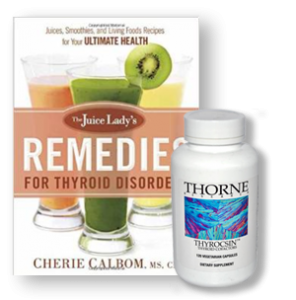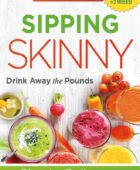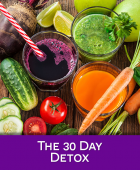Hypothyroid and Weight Loss
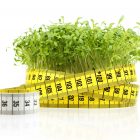
Make it Watercress Juice!
An ancient green, watercress is said to have been a staple in the diet of Roman soldiers, which they used for energy and brain power. It is a part of the cruciferous vegetable family along with kale, broccoli, cauliflower, and Brussels sprouts.
Hippocrates, the father of medicine, used watercress to treat his patients. It was widely available until the 19th century and watercress sandwiches were a staple of the working class in England.
Read MoreAddressing the Stress & Weight Connection
Stressing Out Over Your Weight?
Are you doing everything right when it comes to diet and exercise, but you’re still not losing weight especially around the midsection? The issue could be chronic stress. Is stress eating an old friend? How about making poor food choices when you feel anxious, depressed or nervous? Stress is not just some inconvenience to push through. Failing to address the stress in your life has profound ramifications on your weight as well as your health.
Read MoreYou Really CAN Detox Fat Away!
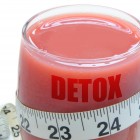
Detox Toxic Fat
When you remove toxins, you will lose weight and feel better. Fat soluble toxins are more difficult to remove than water-soluble toxins that can be flushed from the body easily. Fat-soluble toxins include heavy metals, pesticides, preservatives, food additives, pollutants, plastics and other environmental chemicals. They must become water-soluble for the body to eliminate them completely. These toxins get stored mostly in the fat cells and the liver. With toxins stored in the fat cells, it is difficult to lose weight. The body will hold onto the fat as much as possible to protect your delicate tissues and organs. If the pathways of elimination such as the intestinal tract or the lymphatic system are not functioning optimally, this makes it even harder to get the toxins out of the body. If your diet is deficient in fiber, up to 94% of the bile – along with its toxic baggage – gets reabsorbed back to the liver to be recycled.
Read More6 New Year’s Resolutions You Should Keep
6 New Year’s Resolutions You Should Keep
It’s time to let go of all the things from 2017 that weren’t good for you…the disappointments, the poor health, the extra weight, the financial challenges, the relationship challenges. Whatever it is, it’s time to let it all go. Join me in choosing to make 2018 your best year yet!
Read MoreConstipation, Weight Gain and Health

Constipation, Weight Gain and Health
Have you noticed that when you get constipated, you gain weight or it becomes hard to lose weight? Maintaining regular bowel movements promotes better health and keeps your stomach flat. Bowel regularity will aid you in losing weight and keeping it off. A healthy intestinal tract will allow you to absorb nutrients efficiently, which helps stave off cravings and allows you to build lean muscle without gaining fat. And most importantly, maintaining regular bowel movements can greatly reduce chances of diverticulosis or colon cancer.
Read More6 Health Conditions Vitamin D Might Help

6 Health Conditions Which Vitamin D Might Help
Taken from “6 Health Conditions in Which Vitamin D Plays an Important Role”, By Dr. Mercola
Despite its name, vitamin D is actually a steroid hormone, which you get primarily from either sun exposure or supplementation, along with some foods. Many of its health benefits are due to its ability to influence genetic expression.
Moreover, researchers have discovered that vitamin D is involved in the biochemical cellular machinery of ALL cells and tissues in your body. Hence, when you don’t have enough, your entire body struggles to function optimally.
As a general rule, it would be wise to improve your vitamin D status regardless of what ails you, but if you suffer from any of the following conditions, optimizing your vitamin D is clearly indicated.
Remember that while sunlight is the ideal way to optimize your vitamin D, winter and work prevent more than 90 percent of those reading this article from achieving ideal levels without supplementation. The only one to know you have therapeutic levels of vitamin D is to measure it.
Read MoreWeight Loss and the Pineal Gland
Weight is one of the most common challenges that most people tackle. . . again and again. It is no wonder, as weight gain, weight retention, and weight loss have multifactorial causes and no one solution fits all. It certainly explains while some people are successful applying common diet and exercise approaches while others try the same methods only to find themselves yo-yo-ing between losing and gaining the same stubborn 5,10, 20, or 40 pounds, and finally feel discouraged and almost helpless.
Undoubtedly, there are fundamental principles that lie at the core of any weight optimization strategy, including regular exercise, low calorie nutrient-rich whole foods, and avoidance of processed and artificial foods. We also emphasize stress management and appropriate detoxification, use of herbs and supplemental nutrients. This process always takes discipline. The reward is that usually this approach brings the body into balance so it returns to optimal function and weight. But occasionally we need to address the brain-body communication system which, once out of balance, fails to provide proper feedback in regulating cravings and satiety, mood and energy and even sleep. This signaling needs to be reset in the hypothalamus/pineal command center in the brain, which then begins to send the correct messages to various organs and systems of the body.
The pineal gland is a small pine cone shaped organ inside your brain that secretes hormones like melatonin, serotonin and DMT (Dimethyltryptamine). Melatonin and serotonin are responsible for sleep and meditative states, and emotional states of well-being, bliss, and euphoria.
“We use an extensive questionnaire to identify how your body processes energy, and where the stumbling blocks are, and then create the correct strategy for you bringing together physical, mental and emotional factors, in order to restore balance, and support you on the path to optimal health and weight.”
Read More5 Ways to Tame Your Sweet Tooth
5 Ways to Tame Your Sweet Tooth
Do you like your glass of wine before dinner, your dinners to be accompanied by dessert and your occasional doughnut—or cookie from that corner bakery that you love. But, if you sweet tooth is getting the best of you and you health is suffering as a result, or your waistline is expanding, or your skin is rebelling against your sugar intake with small clusters of blemishes, then it might be high time to curb your sugar habit.
Even if you aren’t a “sugar fiend” by definition, it is likely that your diet still consists of foods and beverages that are packed with sugar without your knowledge (think: orange juice, “natural” fruit chews, and countless other packaged foods you eat on the go.) If weight gain, poor health, or skin breakouts aren’t enough to convince you to slow your sugar intake, then maybe these recent finds will: recently, the British Journal of Sports Medicine referenced a study that found that too much sugar may lead to or trigger “brain disease, liver disease and breast cancer.” Nutritionist, Cherie Calbom asserts that, “the toxicity of excessive sugar consumption is well-documented, yet it’s so prevalent in our packaged foods that we may be digesting it without knowing it.” If you’re in need of a sugar detox, here are the top 5 tips for cutting back.
- Pick the right day to start. A birthday or celebration dinner is not the best time to commit to a new diet. You’ll eventually develop the willpower to navigate through special events, but it’s not a good idea to start with an unusual challenge.
- Go cold turkey. Studies show sugar is as addictive as cocaine and heroin, so it’s not something you can ease into or pursue in half measures. If you eat a little less to gradually eliminate it from your diet, you’ll keep getting triggered into wanting more sweets. You have to completely let it go.
- Scrutinize every label. We are naturally inclined to crave sugar, which is why manufacturers try to smuggle it into their products. The only way to root out sugar in all its forms – soups, condiments, breads, etc. – is to read grocery labels carefully. The sooner sugar is mentioned, the more that’s in there.
- Make emergency snack packs. Whether shopping, traveling or at work, you don’t want to be caught hungry without a healthy option. Plummeting blood-sugar levels will make it that much harder to resist sugar-laden treats. Nuts and seeds, veggie sticks, turkey jerky and apples are among the healthy options.
- Take time to de-stress. Stress causes spikes in cortisol, a hormone that makes you irrationally hungry, leaving you susceptible to sugar-laden snacks. When stressed, take a long, deep breath in for five seconds, hold, and then let it out to a count of five. Deep breathing is said to activate your vagus nerve, which properly regulates metabolism.

Adapted from my article that appeared in Essence magazine this week.
Are you addicted to sugar? Take my Sugar Addiction Quiz, here.
Join My Sugar Detox Program Today It Begins March 28
Get the Early Bird Special!
Don’t wait another day!
If you want to get serious about kicking your sugar habit, get my newest book, The Juice Lady’s Sugar Knockout and sign up for my 30-day Sugar Detox Program. It starts March 28. This is a great way to usher in spring, and detox those chocolate Easter bunnies you ate (I hope not!) a few days before.
Join Today!
Read MoreNeed a 30-Day Weight Loss – Detox?
30-Day Detox – Weight Loss Challenge
The body’s ability to detox toxins is a significant factor in your ability to lose weight and maintain a healthy goal weight. When toxins backup and we experience toxic overload, we experience expanding fat cells that are stuffed with toxins and fat. This equates to an expanding waistline. This is a survival step to get the toxic load out of your bloodstream and away from key organs. However, this causes weight gain and interferes with weight loss because the body does not easily give up toxic fat it has stored.
Our polluted world is a true test of genetic survival of the fittest. The number of toxic chemicals in our world threatens the reproductive ability of the human race and is a large part of the cancer epidemic. Stored chemicals contribute to weight gain in various ways, including disruption of the hormone signaling system that regulates your metabolism and accumulation of toxins in your white adipose tissue.
Toxic lipopolysaccharides (LPS) is the result of bacterial imbalance within the digestive tract. It stimulates the formation of new fat cells and promotes weight gain. LPS causes leptin resistance and thyroid malfunction. It is an example of internally generated toxins along with waste like inflammatory debris and lactic acid. Environmental toxins affect everyone to some degree and can cause metabolic malfunctions of LPS, as well as increase the risk for cancer. Many environmental toxins are fat soluble, which means they readily accumulate in white adipose tissue. To lose weight, It is absolutely vital that you detox your body in a health way to lose weight.
I’ll help you detox and lose weight with my 30-Day Detox Weight Loss Challenge.
Read MoreThyroid Tune-Up
Thyroid Tune-Up
Your thyroid function may be too high, too low, or fifty shades of in between. It’s the “in-between” I want to help because less than optimal doesn’t get addressed with standard thyroid tests. If your thyroid function is suboptimal, you may be fatigued and have trouble losing weight or sleeping. You might have stinging in your eyes or lines on your finger tips. Low thyroid function is a common condition, as evidenced by the fact that Synthroid (synthetic thyroid hormone) is the fourth most prescribed drug in America. But many people struggle with less than optimal health never knowing what to do to get better.
T4 is the primary hormone produced by the thyroid gland but it is not the most active. T4 is converted to T3. T3 is 3 to 8 times more potent than T4. But T4 is the hormone measured. What matters most, however, is how well the thyroid hormones do their job, not just how much hormone is measured in a blood test.
Stress hormones, nutrient deficiencies such as iodine and selenium, mercury, lead, and cadmium toxicity along with certain medications can impair the enzymatic conversion of T4 to T3. Other aspects of thyroid hormone metabolism can be impaired and ultimately result in less than optimal thyroid function. Inadequate thyroid stimulatory hormones from the brain and pituitary gland due to stress, very low calorie diets, inflammation, and environmental toxins can promote low thyroid function. Other dysfunctions include impaired production of hormones due to iodine deficiency, toxins that affect the thyroid (chlorine, bromine, and fluoride), certain medications, excessive intake of certain foods especially sugar, and autoimmune reactions, which can be initiated by food intolerances and other environmental factors.
You can improve your thyroid function and bring it into more optimal function. Take the Thyroid Quiz to get a better idea about your thyroid health.
For my nutritional program to heal the thyroid, get a copy of my latest book The Juice Lady’s Remedies for Thyroid Disorder on sale now for $9.00.
Thyrocsin™ for $27.35 is an excellent thyroid supplement that I highly recommend.
Special offer Thyroid Renew—the book and the supplement $35.95
Special supplement offer Thyrocsin™ 3-pack $59.95.
You may want to couple this with my adrenal support Vitality Renew.
Read More
Adrenal-Thyroid Connection
Adrenal-Thyroid Connection
When your adrenals are constantly stressed, this sets off an autoimmune, inflammatory response in your entire body. The adrenal-hypothalamus-pituitary feedback loop regulates the secretion of cortisol. All of your organs and your immune system are impacted negatively by the resulting constant assault of cortisol. Low adrenal function can actually cause someone’s thyroid problem to be much worse than it would be otherwise.
When people with both low thyroid and low adrenal function are put on thyroid hormone alone, they sometimes feel worse. If you have low adrenal levels and take thyroid hormone by itself, the increased metabolism may accelerate the low adrenal problem. Also, interactions between the hormones are sometimes as important as the direct action of the hormone itself. Some adrenal hormones assist in the conversion of T-4 to T-3, and may assist in the final effect of T-3 on the tissues. Some scientists believe that even the entrance of thyroid hormone into the cells is under the influence of adrenal hormones. If your adrenal level is low enough, you could benefit by taking both adrenal and thyroid support together.
Read MoreSugar’s Bitter Truth
Sugar and Inflammation
For the last four decades, Americans have avoided fats and gorged on sugar. Sugar is a leading contributor to type 2 diabetes, Parkinson’s, Alzheimer’s, MS, metabolic syndrome, and excessive weight gain. It also increases the risk of heart disease, certain cancers, high blood pressure, and osteoporosis; actually nearly every disease has a link to sugar.
Sugar in the amount that the typical Americans eat (about 64 pounds a year) continually upsets our body chemistry and causes the inflammatory process that leads to disease. The less sugar you eat, the less inflammation, and the stronger your immune system, which defends us against infectious and degenerative diseases.
Excess sugar in the blood causes glycation, a process where a sugar molecule binds to a protein or a fat, and leads to the formation of advanced glycation end products (AGEs). AGEs are inflammatory; they are associated with type 2 diabetes, aging, and many diseases.
Don’t be fooled. Sugar is hidden in packaging in many different forms: high fructose corn syrup, corn syrup solids, sucrose, maltose, dextrose, fructose, glucose, galactose, lactose. When a manufacturer wants to sweeten up a certain brand of cereal, for example, it can either do this using 15 grams of sugar, or, 5 grams of malt syrup, 5 grams of invert sugar, and 5 grams of glucose. Some manufacturers seem to be choosing this divide and masquerade method, placing these ingredients lower down on their products’ lists, making the public believe that the amount of sugar in the product is smaller than it is.
It’s all still sugar: Cane juice, dehydrated cane juice, cane juice solids, cane juice crystals, dextrin, maltodextrin, dextran, barley malt, beet sugar, caramel, buttered syrup, carob syrup, brown sugar, date sugar, malt syrup, diatastic malt (enzymes that breakdown starch into sugar), fruit juice concentrate, dehydrated fruit juice, fruit juice crystals, golden syrup, turbinado, sorghum syrup, molasses, refiner’s syrup, ethyl malitol, maple syrup, yellow rock sugar, and sugar alcohols such as sorbitol and mannitol.
Healthy Alternative Sweeteners
- Stevia (recommend Sweet Leaf Vanilla Creme)
- Coconut sugar and coconut nectar
- Small amounts of pure maple syrup
- Small amounts of local raw honey




